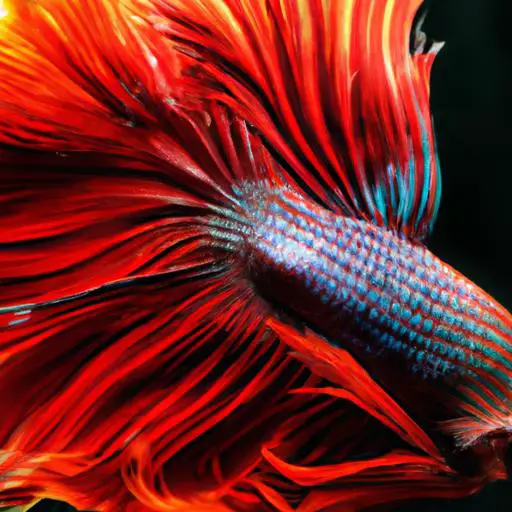Understanding Fish Survival: How long can a fish live out of water?
Table of Contents
In the mysterious world beneath the shimmering surface of the water, fish glide gracefully, their glistening scales reflecting the sunlight. But have you ever wondered, How long can a fish live out of water? The ability of fish to exist out of water is a fascinating topic that unveils the surprising resilience of certain species. Let’s delve into the realm of fish physiology and explore the intriguing question of how long can a fish live out of water. Join us on this journey as we uncover the remarkable abilities of these underwater beings. [1]
Understanding the Physiological Limits of Fish
Fish, like most living organisms, have distinct physiological limits that dictate, how long can a fish live out of water. When a fish is removed from its aquatic habitat, it experiences acute hypoxia due to the lack of dissolved oxygen in the air, which can lead to severe stress and potentially fatal consequences [1]. Despite this challenge, some species exhibit a remarkable ability to adapt and survive for extended periods out of water, showcasing their resilience in adverse conditions.
Researchers have identified critical thermal limits as a key factor influencing the survival of fish in varying environments. These limits refer to temperatures that can be lethal to fish when exposed to rapid changes in temperature, highlighting the sensitivity of these organisms to thermal stress [2]. Understanding these physiological boundaries is essential for comprehending the survivability of fish in different habitats and climate conditions, informing conservation efforts and management practices to ensure the well-being of aquatic ecosystems.
Factors Affecting How long can a fish live out of water
When considering the factors that affect How long can a fish live out of water, it’s important to understand that different species exhibit varying survivability rates. Factors such as species type, size, and overall health play a crucial role in determining the duration a fish can endure outside of its aquatic environment. As highlighted in a study by Aquarium Store Depot, the survival time of a fish out of water is directly affected by these variables. Larger fish species tend to have a shorter survival time compared to smaller ones, and any existing injuries can further decrease their chances of survival.
Moreover, environmental factors can significantly impact a fish’s ability to survive out of water. For instance, exposure to air can lead to acute hypoxia and physical damage, affecting the fish’s post-release behavior and overall survival rates, as discussed in a publication by ResearchGate. Temperature, water quality, and stress levels also contribute to the fish’s ability to withstand being out of water. Understanding these factors is essential for ensuring the well-being of fish that may find themselves temporarily removed from their natural habitat.
Common Misconceptions About Fish Out of Water
There are several misconceptions surrounding How long can a fish live out of water, fueling myths that may not hold true. Contrary to popular belief, fish can actually survive for varying periods out of water depending on the species. While some species like goldfish may survive for a few minutes, other types might endure for longer durations. For instance, studies suggest that a fish out of water for a full minute has a 72% survival rate[3]. It’s essential to understand the specific needs of the fish in question to avoid misunderstandings about their survival capabilities.
It’s crucial not to assume that all fish have the same resilience when it comes to being out of their aquatic environment. Different species exhibit differing tolerances to being out of water, with some capable of breathing air for extended periods. While most fish cannot live for long out of water, it’s always best to handle them with care and return them promptly to their natural habitat. By dispelling these misconceptions, we can better appreciate and respect the unique characteristics and requirements of fish species, ensuring their well-being and survival.
Tips for Improving a Fish’s Chance of Survival
When it comes to ensuring a fish’s survival, particularly regarding the question of How long can a fish live out of water, there are several key tips to keep in mind. First and foremost, prompt action is crucial. If you find a fish out of water, it is vital to act quickly to help it return to its natural habitat. Remember, a fish’s ability to survive out of water varies depending on the species, so every second counts.
Secondly, handling the fish with care is essential. Avoid causing unnecessary stress or harm to the fish during the process of returning it to the water. Gentle handling can significantly improve the fish’s chances of recovery and survival. By following these tips and acting swiftly and gently, you can make a significant difference in helping a fish survive being out of water.

The Role of Temperature and Humidity in Fish Survival
Fish, fascinating creatures of the underwater world, have unique abilities to adapt to challenging environments. When it comes to surviving outside of their aquatic homes, the interplay between temperature and humidity plays a critical role in determining how long a fish can persist. Research suggests that fish like goldfish can survive for extended periods outside of water if their bodies and gills remain moist, allowing them to continue functioning[2]. This resilience showcases their remarkable survival instincts even in unfamiliar and dire circumstances.
- Goldfish have a unique ability to survive outside water if their gills and bodies stay moist.
- Temperature and humidity levels are crucial factors in determining the duration of fish survival outside water.
- Resilient and adaptable, fish like goldfish show incredible survival instincts even in challenging environments.
In the realm of fish survival, some species like walleye and pike exhibit signs of life for up to 20 to 30 minutes after being removed from water[3]. The higher the humidity, the longer these fish may show vitality outside their natural habitat. Understanding the delicate balance between temperature and humidity can provide insights into the limits of fish adaptation and the remarkable ways they navigate survival in diverse environments.
- Some fish species like walleye and pike can display signs of life for around 20 to 30 minutes out of the water.
- Humidity levels play a significant role in prolonging the survival of fish outside of their aquatic environment.
- Exploring the relationship between temperature, humidity, and fish survival offers valuable insights into their extraordinary adaptation capabilities.

Signs of Distress in a Fish Out of Water
When a fish finds itself out of water, it’s crucial to be attentive to the signs of distress that indicate the severity of the situation. Some key indicators to look out for include:
- Gasping at the surface: This behavior may suggest a lack of oxygen, triggering stress in the fish [2].
- Excessive flapping: If the fish is seen making frantic movements, it could be a sign of extreme distress.
- Changes in coloration: Loss of vibrancy in the fish’s color can indicate stress [1].
These signs are vital to recognize when a fish is out of water, as they can help assess the urgency of the situation and provide necessary assistance promptly. It’s essential to understand that the longer a fish remains out of water, the greater the risk to its well-being.

Importance of Returning Fish to Water Quickly
Returning fish to the water quickly after catching them is crucial for their survival. Fish are adapted to live in water, and being out of their natural habitat can cause stress and harm. By minimizing the time a fish spends out of water, you increase its chances of making a full recovery and thriving once released back into its environment.
Factors like oxygen deprivation, temperature changes, and physical injuries can all impact How long can a fish live out of water. It is essential to handle fish with care, avoid unnecessary delays, and follow proper release techniques to ensure they have the best chance of survival. Remember, every moment counts when it comes to returning fish to water quickly after catching them.
How long can a fish live out of water?
Generally, freshwater fish can survive outside of water for about 10 to 60 minutes, but the specific duration can vary depending on the species of fish[1].
Is there a specific fish species that can live longer out of water?
While most freshwater fish have a survival range of 10 to 60 minutes outside of water, some species may have adaptations that allow them to live for slightly longer periods. It’s important to consider the specific characteristics and behaviors of the fish species involved[1].
How long can fish survive without food?
In general, most fish can go without food for approximately three days to two weeks, although it’s not recommended to assume that all fish will be able to last that long without proper nutrition. It’s crucial to monitor the health and well-being of your fish and provide food accordingly[3].
Final Thoughts: how long can a fish live out of water
As we conclude our exploration into the fascinating question of how long a fish can survive out of water, it becomes evident that the delicate balance between aquatic life and terrestrial challenges is truly remarkable. From the serene depths of lakes[1] to the changing landscapes influenced by climate change on fisheries[2], the resilience of these aquatic creatures is both a testament to their adaptability and a reminder of the interconnectedness of our planet.
Through declarative statements and interrogative inquiries[3], we have delved into the world of fish survival beyond the waters they call home. As we bid farewell to this discussion, may we carry with us a newfound appreciation for the wonders of the natural world and the intricate mechanisms that govern the lifespan of these remarkable creatures.
So, as we reflect on the profound question of how long a fish can live out of water, let us remember that in this ever-changing world, the boundaries between land and sea are not just physical barriers but reflections of the continuous cycle of life and the resilience of nature itself.







